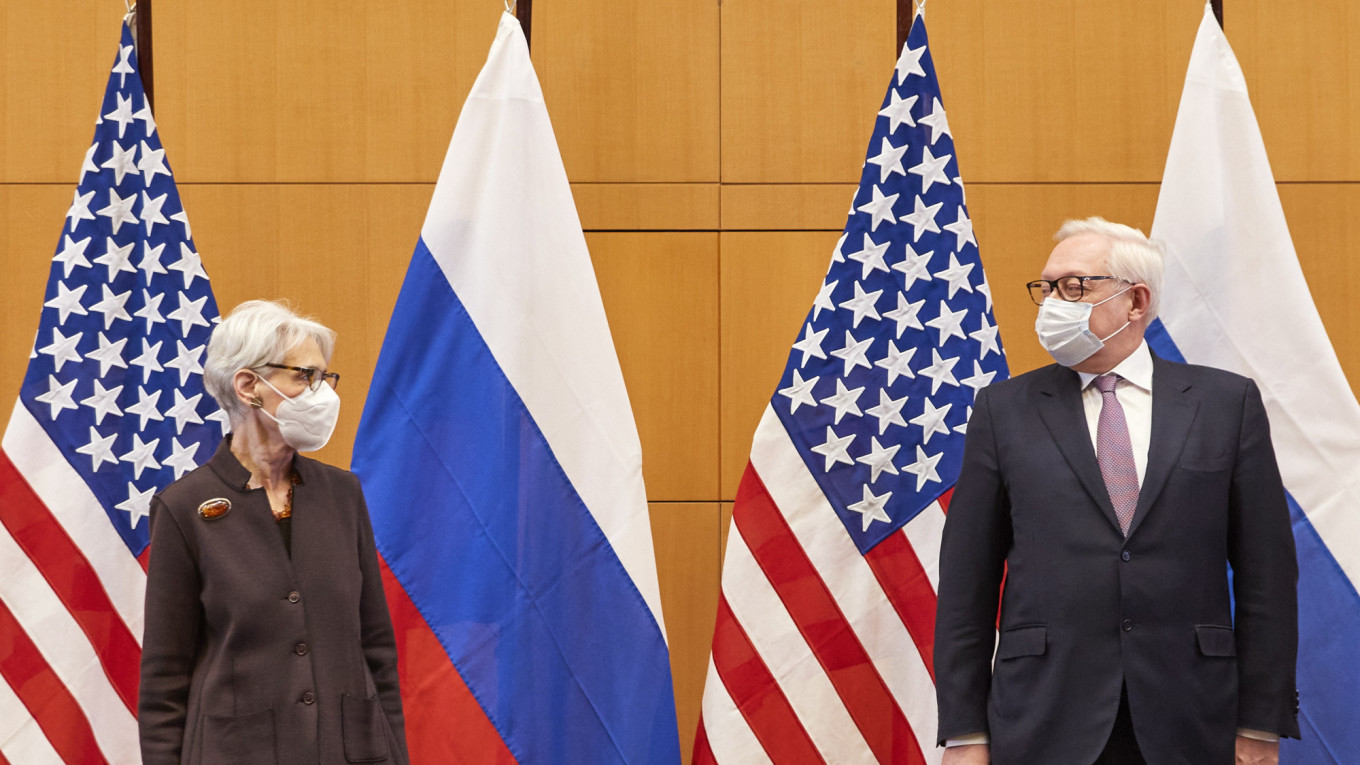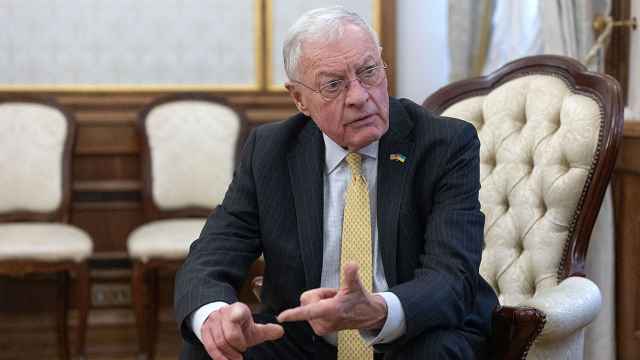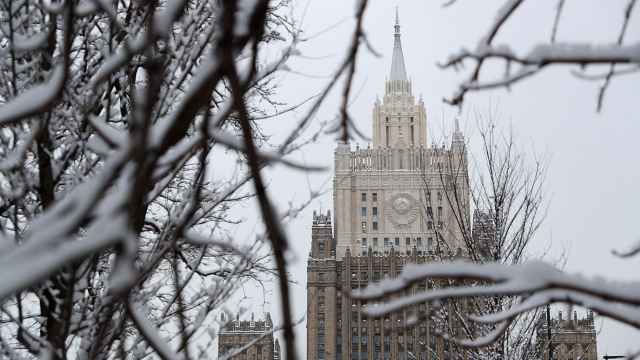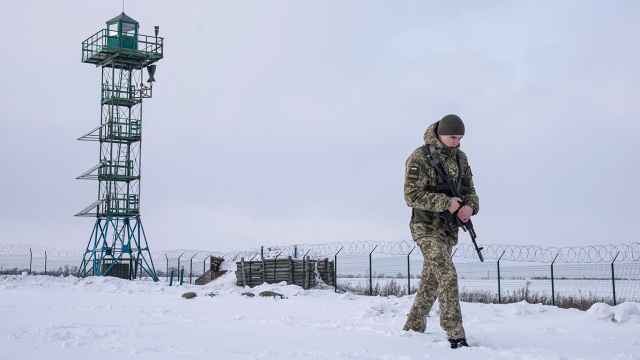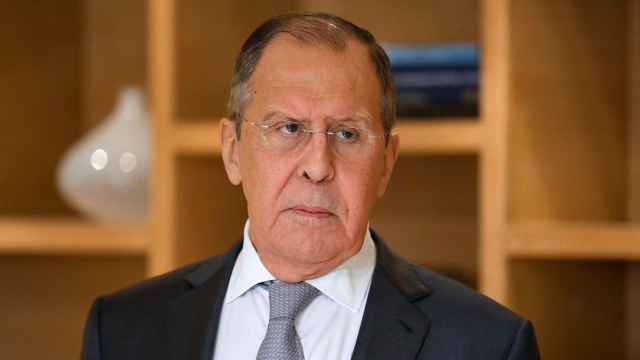Russia told the United States at tense talks Monday that it had no plans to invade Ukraine, as the two sides agreed to more efforts to keep tensions from turning into a full-blown confrontation.
After more than seven hours of negotiations in Geneva, the Russian and U.S. negotiators both offered to keep talking, though there was no sign of a major breakthrough.
The high-stakes negotiations came amid fears of a Russian invasion of its pro-Western neighbor Ukraine, and with Moscow demanding wide-ranging concessions from Washington and its NATO allies.
Russian Deputy Foreign Minister Sergei Ryabkov said he had assured his U.S. counterpart, Deputy Secretary of State Wendy Sherman, that those fears were unfounded.
"We explained to our colleagues that we have no plans, no intentions to 'attack' Ukraine... There is no reason to fear any escalation in this regard," he told reporters after the talks.
Ryabkov said the United States "took Russian proposals very seriously" and that Moscow was "for the continuation of dialogue."
Sherman said that she offered to make reciprocal moves with Russia on missiles and exercises, but renewed warnings of major costs if Moscow invaded Ukraine.
'Non-starters' for U.S.
She said the United States was ready to meet again, but that Russia had not offered assurances that it will pull back troops amassed near Ukraine.
And she insisted that some of Russia's demands were "simply non-starters," including a ban on NATO's further eastward expansion.
"We will not allow anyone to slam closed NATO's open-door policy," Sherman said.
Monday's talks in Geneva launched a week of diplomacy between Russia and the West after Moscow amassed tens of thousands of troops at the Ukrainian border, drawing the United States into a Cold War-style stand-off.
Both sides have set firm lines, with Washington warning that Moscow would face severe diplomatic and economic consequences from an invasion of Ukraine, and Russia demanding broad new security arrangements with the West.
After Monday's talks, a meeting of the NATO-Russia Council will take place in Brussels on Wednesday, then the permanent council of the Organization for Security and Cooperation in Europe (OSCE) will meet in Vienna on Thursday with the issue of Ukraine expected to dominate.
Sherman renewed a call on Russia to pull back its estimated 100,000 troops.
If Russia invades, she said, "there will be significant costs and consequences, well beyond what they faced in 2014," when Moscow seized the Crimean peninsula and backed an insurgency in eastern Ukraine.
Ryabkov denounced U.S. threats as "attempts at blackmail and intimidation," but said "I don't think the situation is hopeless."
'Severe costs' of invasion
Any direct military action by the United States or NATO in defense of Ukraine is extremely unlikely.
But Western officials have warned Moscow would face significant economic and financial consequences if it invades, and could see NATO boost its presence and capacities near Russia's borders.
NATO chief Jens Stoltenberg said Monday that the alliance would be warning Russia of the "severe costs" of an invasion.
He said he did not expect this week's talks to "solve all the issues," but wanted to kickstart a diplomatic process.
"We are aiming for an agreement on a way forward, a process, a series of meetings," Stoltenberg said before talks with Ukraine's deputy prime minister in Brussels.
Measures against Russia under consideration include sanctions on President Vladimir Putin's inner circle, cancelling Russia's controversial Nord Stream 2 pipeline to Germany or, in the most drastic scenario, severing Russia's links to the world's banking system.
'Soviet Union 2.0'
Moscow insists it was deceived after the Cold War and understood that NATO would not expand eastward.
Instead, the U.S.-led alliance welcomed most of the former Warsaw Pact countries and the three Baltic nations that were under Soviet rule.
Russia has put intense pressure on Ukraine since 2014 after a revolution overthrew a government that had sided with the Kremlin against moving closer to Europe.
Russia seized the Crimean peninsula and backs an insurgency in eastern Ukraine in which more than 13,000 people have died.
The heaviest of the fighting has subsided but clashes continue almost daily, with the Ukrainian army saying Monday that two of its soldiers died after an explosion from an unknown device.
The army also accused separatist forces of firing at its positions with grenade launchers, machineguns and small arms.
In the muddy trenches on the frontline, there was little hope for diplomacy.
"I doubt that anything will change," 29-year-old soldier Mykhailo said as he walked through trenches in the town of Avdiivka, just north of the separatist stronghold city of Donetsk.
"Guarantees of not joining NATO will never stop" Putin, Mykhailo said, adding: "He wants to return the Soviet Union in version 2.0."
A Message from The Moscow Times:
Dear readers,
We are facing unprecedented challenges. Russia's Prosecutor General's Office has designated The Moscow Times as an "undesirable" organization, criminalizing our work and putting our staff at risk of prosecution. This follows our earlier unjust labeling as a "foreign agent."
These actions are direct attempts to silence independent journalism in Russia. The authorities claim our work "discredits the decisions of the Russian leadership." We see things differently: we strive to provide accurate, unbiased reporting on Russia.
We, the journalists of The Moscow Times, refuse to be silenced. But to continue our work, we need your help.
Your support, no matter how small, makes a world of difference. If you can, please support us monthly starting from just $2. It's quick to set up, and every contribution makes a significant impact.
By supporting The Moscow Times, you're defending open, independent journalism in the face of repression. Thank you for standing with us.
Remind me later.


